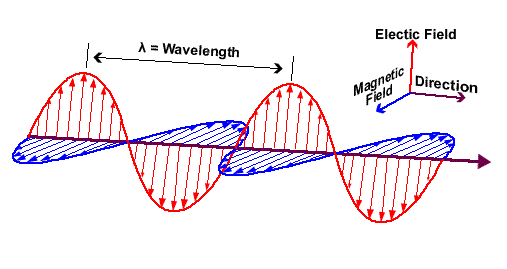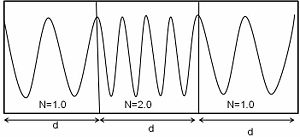Does wavelength of light change in different mediums?
1 Answer
Yes, the wavelength shortens as it passes through an optically dense medium.
Explanation:
Physicists refer to light as electromagnetic waves, referring to the fact that light is made up of two oscillating fields; one is magnetic, and the other is electric.

Light travels fastest in a vacuum. When the light encounters a medium, such as glass, the charged particles that make up the glass interfere, slowing the wave down. The wave continues to oscillate at the same rate, however, so as the wave slows, the wavelength must contract.

In the image above,

